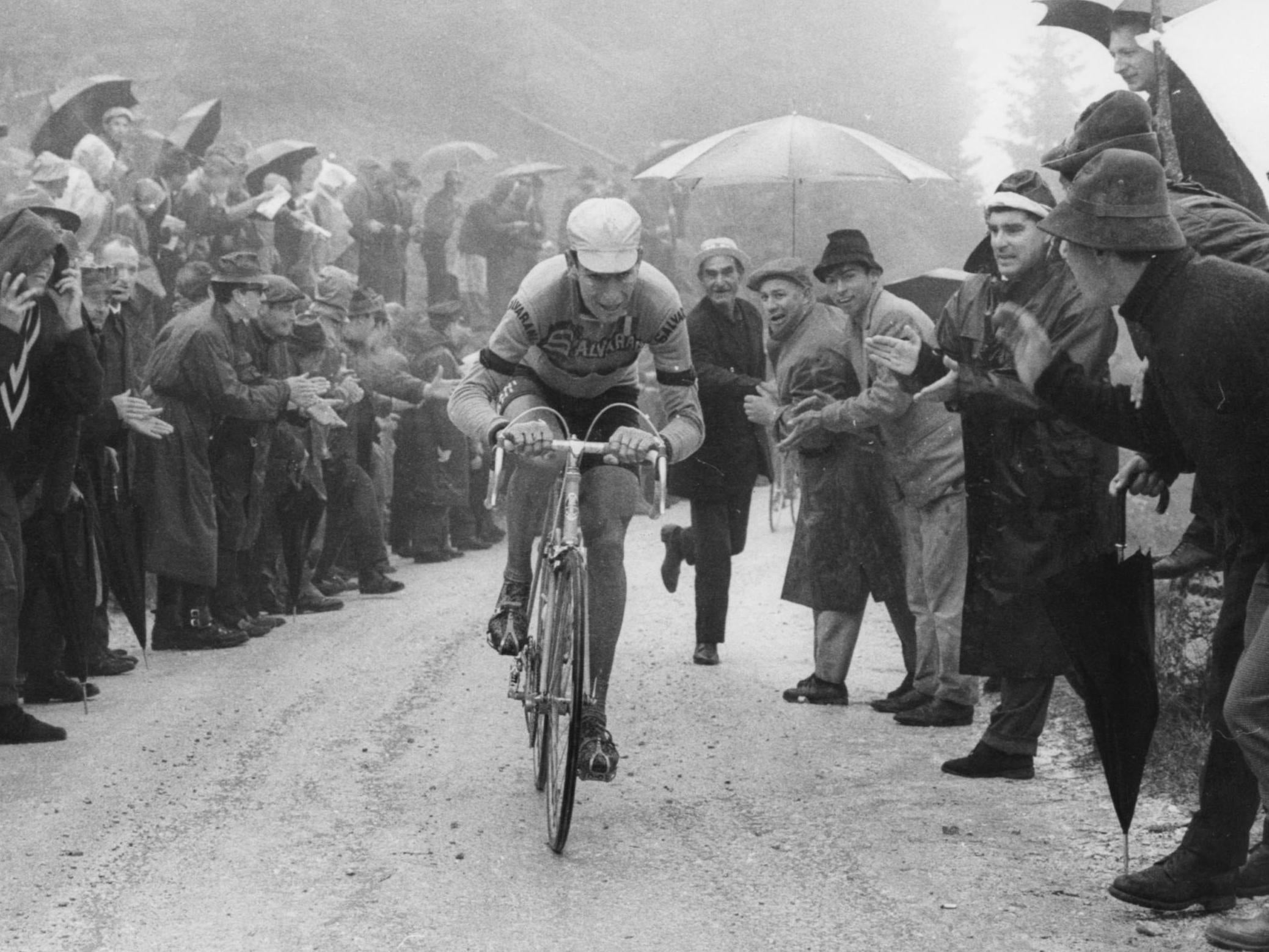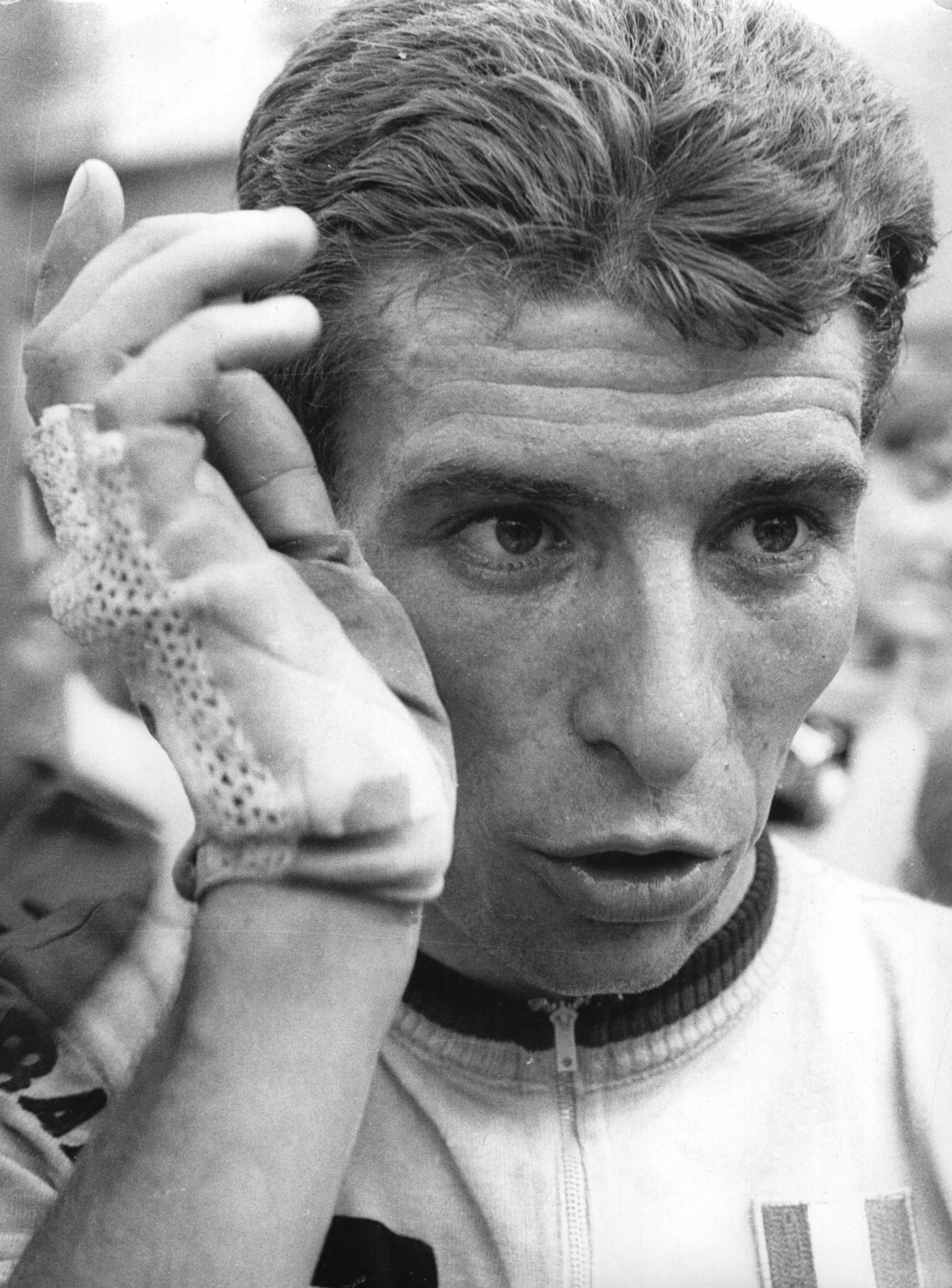Felice Gimondi: Italian cyclist who outclassed nearly all rivals in the 1960s and 1970s
He won all three Grand Tours, including the Tour de France in 1965 when he was just 22

Felice Gimondi was the greatest Italian cyclist of the 1960s and 1970s and is considered one of cycling’s foremost competitors of the 20th century, one of only seven cyclists to have won all three Grand Tours.
Gimondi – who has died aged 72 from a heart attack while on holiday in Sicily – won the Tour de France in 1965 aged only 22, the youngest postwar champion until Egan Bernal this year. But he was destined to be in the shadow of Belgian cyclist Eddy Merckx, who dominated the sport from 1966 to 1976.
Gimondi was born in the small town of Sedrina in the northern Italian province of Bergamo. His father ran a small transport business while his mother delivered the local post on a bicycle. As a child he loved to jump on his mother’s bike and cycle off and she soon had Felice helping her in delivering the post. Gimondi would later recall that he learnt to cycle barefoot as his parents lacked the funds to buy him shoes.
His talent as a cyclist quickly became evident and he began racing in 1959, winning his first race the following year. Selected for the Italian cycling team, in 1964 Gimondi competed in the road race at the Tokyo Olympics, finishing in 33rd place. This placing did nothing to discourage him and later that year he went on to win the Tour de l’Avenir, a mini version of the Tour de France for riders under 25 and turned professional.

Italy embraced the handsome, smiling Gimondi and he was held up as the nation’s favourite son to replace the legendary “Campionissimo” Fausto Coppi (who had died from malaria aged 40 in 1960). That year also saw Gimondi begin an enduring connection with the Bianchi cycle company – celebrated for its links with Coppi – when Coppi’s former mechanic approached him to race for the amateur team.
His victory in the 1965 Tour de France during his first season as a professional proved the Italian public’s enthusiasm was well placed, his popularity helped by the fact that Gimondi was selected for the Salvarani team only when another rider pulled out (he had to ask his mother permission to compete). The following season, Gimondi focused on one-day racing, taking the Paris-Roubaix cobbled classic with an epic 42km solo break. He added the marathon Paris-Brussels and, at the end of the season, won the Giro di Lombardia (which Coppi had won five times). He then won the Giro d’Italia in 1967 and the Vuelta a Espana in 1968.
With these victories Gimondi became the second-ever rider to have won all three Grand Tours (France, Italy, Spain) after the great French cyclist Jacques Anquetil. Aged 25, Gimondi was in his prime but it was Merckx who would go on to dominate European cycling for the next eight years.
The Italian beat the Belgian head to head only a few times, most notably in the 1973 world championship at Barcelona. Like Mercx, Gimondi fell foul of doping, first in the 1968 Giro di Lombardia and then during the 1975 Tour de France.
Gimondi won the Giro d’Italia in 1969 – so reinforcing his heroic status at home – and again in 1976. The latter win was remarkable with the Italian now not being seriously considered as a possible winner, yet he overcame a deficit on race leader Johan De Muynck in the final time trial to take his third victory in the race. His success was subsequently referred to as “the miracle in Milan”. Having been nicknamed “the Phoenix”, this final victory was especially sweet for Gimondi.
After retiring in 1968, he set up an insurance company, but his association with the Bianchi cycle company meant he kept in touch with the sport.
He is survived by his wife Tiziana Bersano, whom he married in 1968, and two daughters.
Felice Gimondi, cyclist, born 29 September 1942, died 16 August 2019
Join our commenting forum
Join thought-provoking conversations, follow other Independent readers and see their replies
Comments
Bookmark popover
Removed from bookmarks